A monochromatic beam of light fall on YDSE apparatus at some angle (say θ) as shown in figure. A thin sheet of glass is inserted in front of the lower slit s2. The central bright fringe (path difference =0) will be obtained
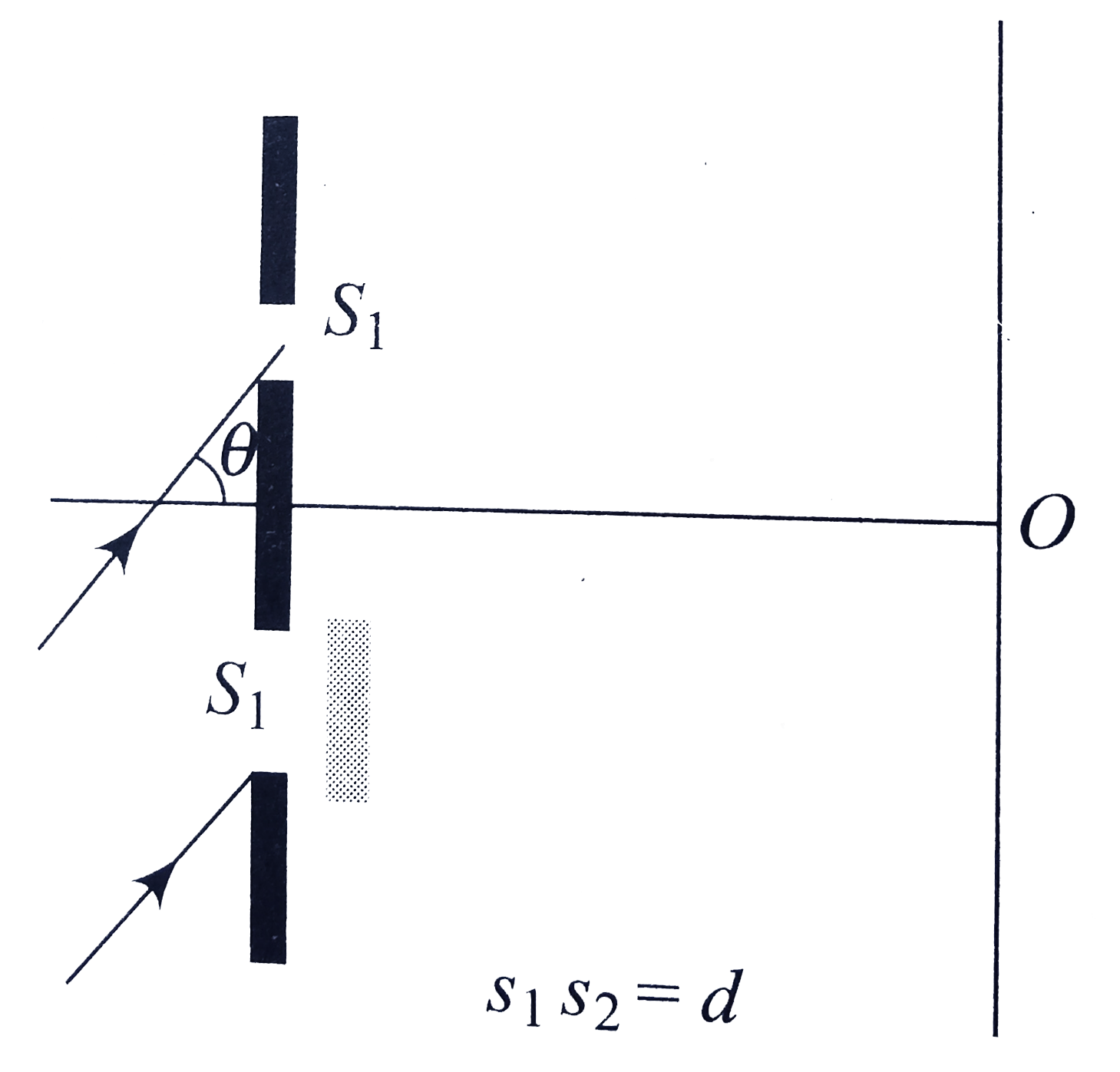
at O
above O
below O
anywhere depending on angle θ, thickenss of plate t, and refractive index of glass μ
The correct Answer is:D
If dsinθ=(μ−1)t, central fringe is obtained at O.
If dsinθ>(μ−1)t, central fringe is obtained above O.
If dsinθ<(μ−1)t, central fringe is obtained below O.
Topper's Solved these Questions
- WAVE OPTICSBOOK - CENGAGE PHYSICSCHAPTER - WAVE OPTICSEXERCISE - Multiple Correct
8 Videos
- WAVE OPTICSBOOK - CENGAGE PHYSICSCHAPTER - WAVE OPTICSEXERCISE - Assertion- Reasoning
13 Videos
- WAVE OPTICSBOOK - CENGAGE PHYSICSCHAPTER - WAVE OPTICSEXERCISE - Subjective
11 Videos
- THERMODYNAMICSBOOK - CENGAGE PHYSICSCHAPTER - THERMODYNAMICSEXERCISE - QUESTION BANK
34 Videos
- WAVESBOOK - CENGAGE PHYSICSCHAPTER - WAVESEXERCISE - QUESTION BANK
38 Videos
Similar Questions
A vessel ABCD of 10cm width has two small slits S1 and S2 sealed with idebtical glass plates of equal thickness. The distance between the slits is 0.8mm. POQ is the line perpendicular to the plane AB and passing through O, the middle point of S1 and S2. A monochromatic light source is kept at S,40cm below P and 2m from the vessel, to illuminate the slits as shown in the figure. Calculate the position of the central bright fringe on the other wall CD with respect of the line OQ. Now, a liquid is poured into the vessel and filled up to OQ. The central bright fringe is fiund to be at Q. Calculate the refractive index of the liquid.
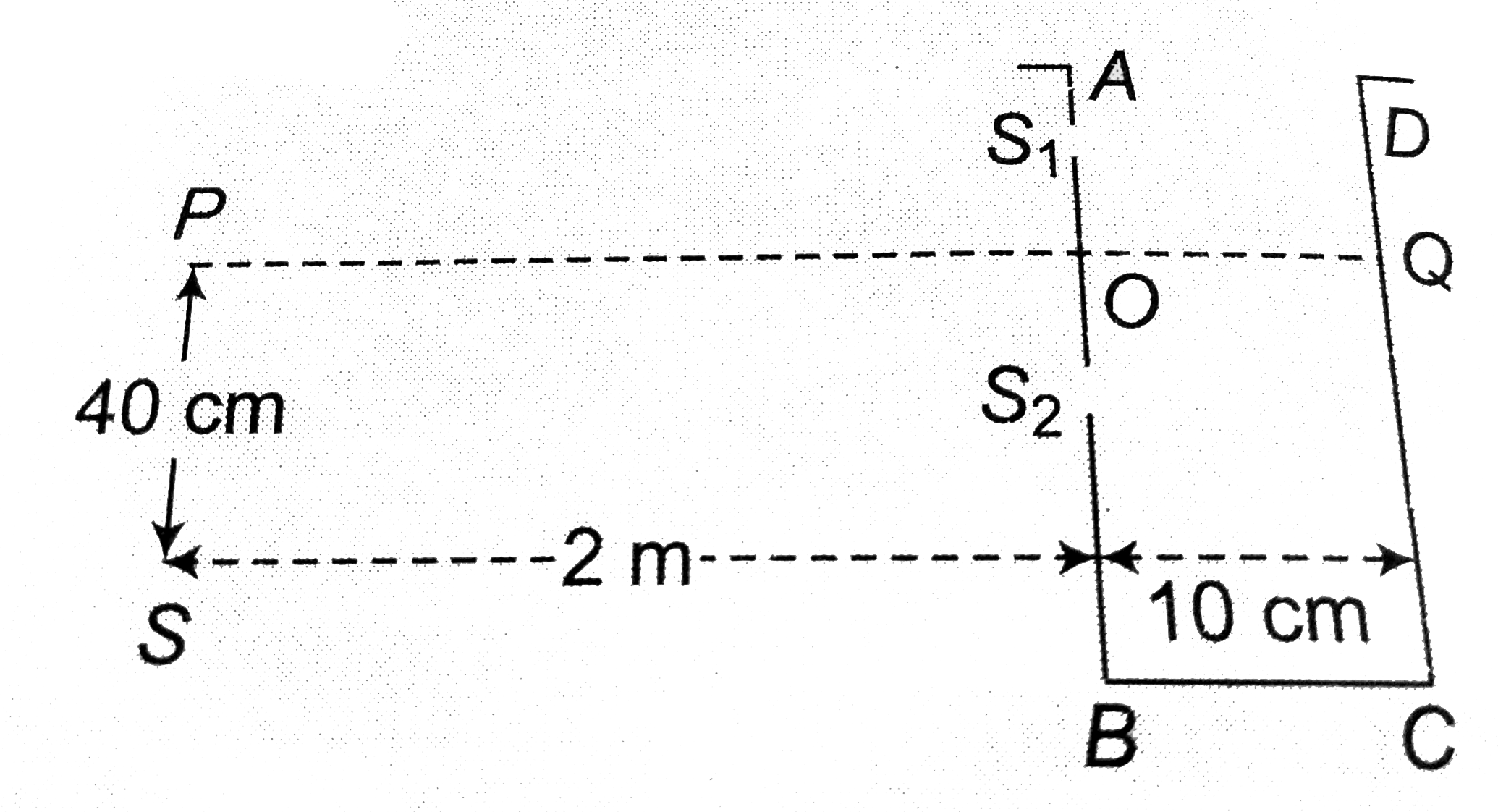
View SolutionAssertion In the YDSE set up shown in figure a glass slab is inserted in front of the slit S1 as shown in figure Then zero order maxima (where path difference =0) will lie above point O.
Reason Glass slab will produce an extra path difference in the path of the ray passing through S1
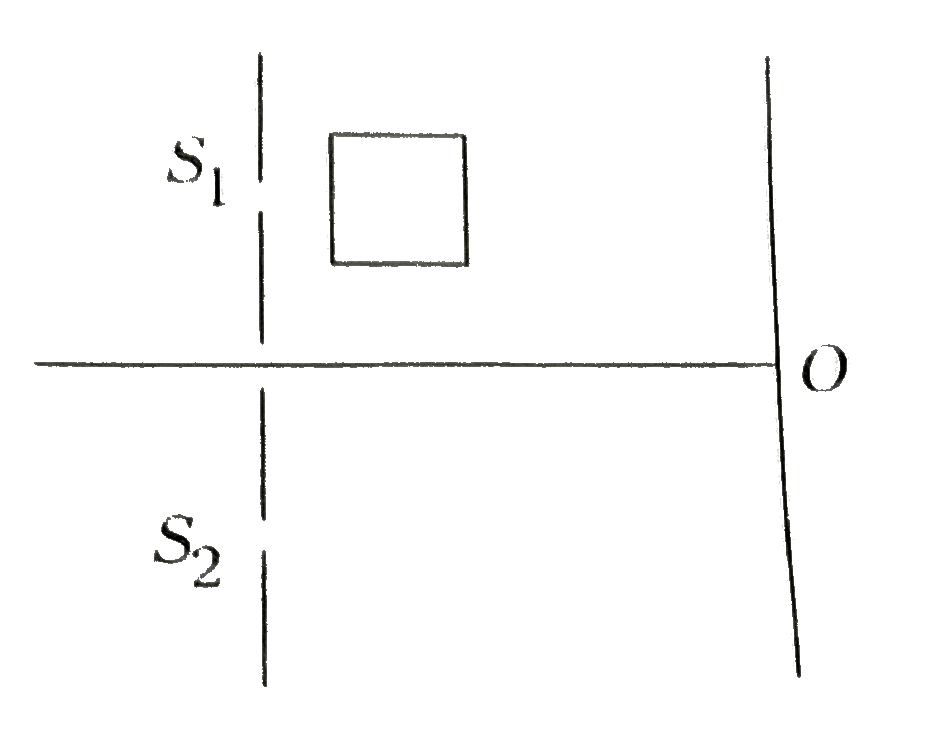
View Solution
Knowledge Check
A monochromatic beam of light falls on Young's double slit experiment apparatus as shown in figure. A thin sheet of glass is inserted in front of lower slit S2(λ=600nm is wavelength of source)

If central bright fringe is obtained on screen at 'O' thenA(μ−1)t=dsinθB(μ−1)t=dcosθC(μt)=dθDt(μ−1)=dsinθA monochromatic beam of light falls on Young's double slit experiment apparatus as shown in figure. A thin sheet of glass is inserted in front of lower slit S2(λ=600nm is wavelength of source)

The phase difference between central masxima and 5th minima isAπ6B9πC3π2D8π±π6A YDSE is conducted in water (μ1) as shown in figure. A glass plate of thickness t and refractive index μ2 is placed in the path of S2. The optical path difference at O is
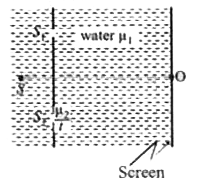 A(μ2−1)tB(μ1−1)tC(μ2μ1−1)tD(μ2−μ1)t
A(μ2−1)tB(μ1−1)tC(μ2μ1−1)tD(μ2−μ1)t
In the YDSE apparatus shown in figure Δx is the path difference between S2PandS1P. Now a glass slab is introduced in front of S2, then match the following.
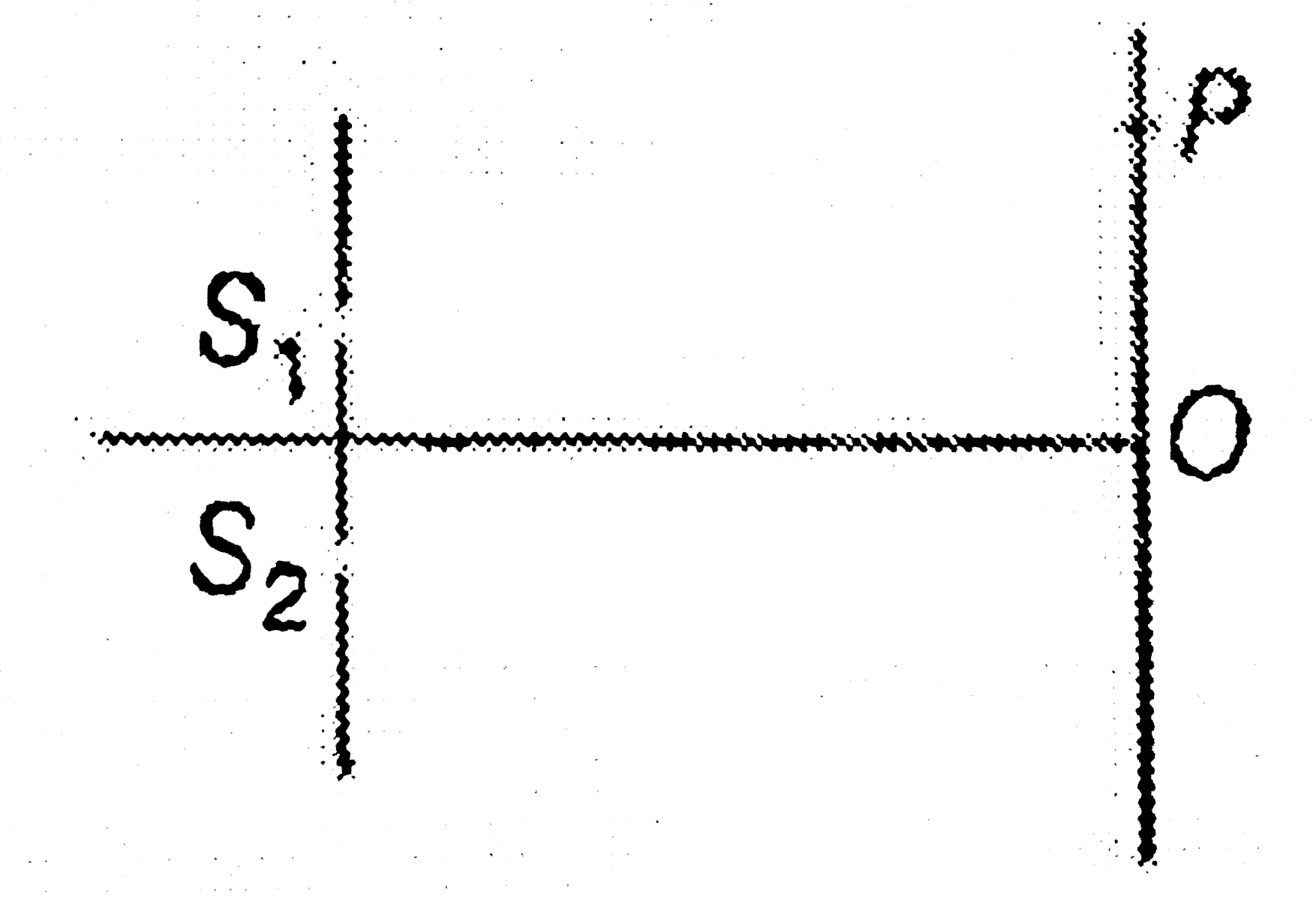

View SolutionIn a double slit experiment a parallel beam of light strikes the slit plane at an angleθ as shown in the figure. The two slits are covered with transparent plastic sheets of equal thickness t but of different refractive indices 1.2 and 1.5. The central maxima is formed at the centre of the screen at C.
(a) Which sheet was used to cover the slit S1?
(b) Findθ.
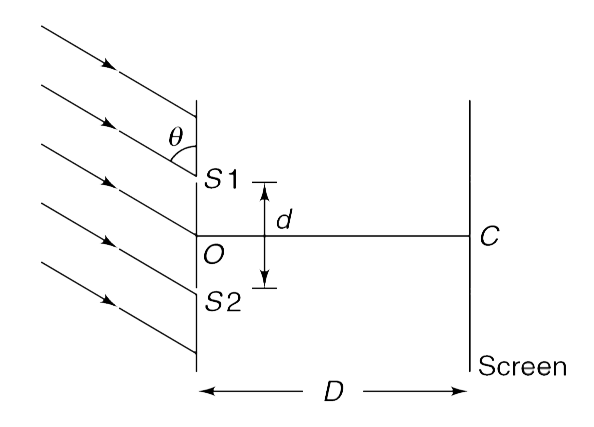
View SolutionIn a Young's double slit experimental arrangement shown here, if a mica sheet of thickness t and refractive indec μ is placed in front of the slit S1, then the path difference (S1P−S2P) is
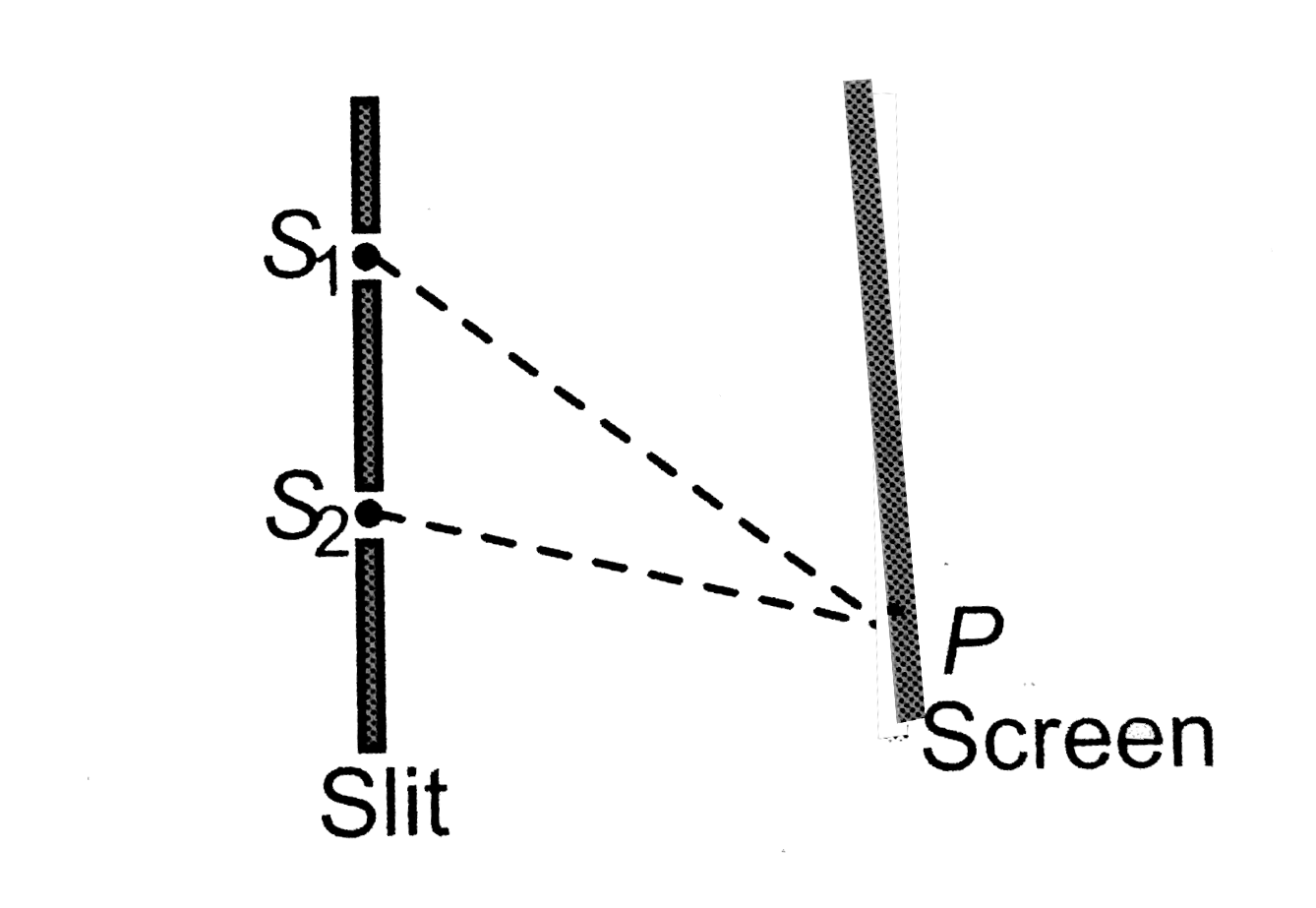
View SolutionIn a YDSE, fringes are produced by monochromatic light of wavelength 5450Å. A thin plate of glass of refractive index 1.5 is placed normally in the path of one of the intefering beams and the central bright band of the fringe system is found to move into the position previoysly occupied by the third band from the centre. select the correct alternatie
View SolutionIn YDSE monochromatic light of wavelength 600 nm incident of slits as shown in figure.
_PHY_E01_002_Q01.png)
If S1S2=3mm,OP=11mm then
View Solution
